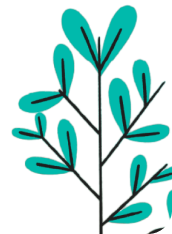How
Cultivating Nurturing Care
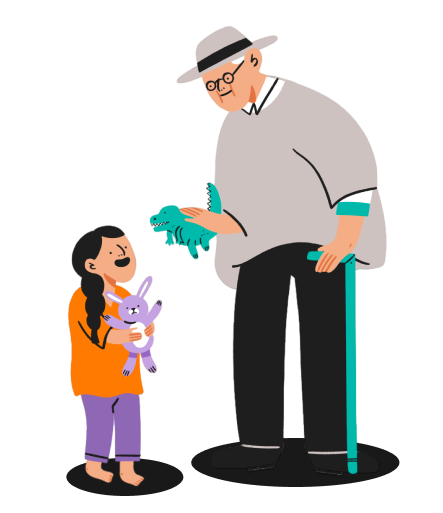



At Semillas de Apego, we promote healthy early childhood development. We do this by helping mothers, fathers, and caregivers improve their mental health while fostering secure attachment relationships. Participants in our program have a safe space for self-reflection and tools to process their own experiences, empowering them to strengthen their emotional connection with their children.
We understand that mental health and emotional bonds are crucial to early childhood development. That's why our approach emphasizes caring for the caregiver. By protecting the mental health of mothers, fathers, and caregivers, we create conditions for building strong emotional connections that safeguard the development of young children.

We provide safe spaces for thinking about mental health and practical tools for managing life experiences, controlling emotions, and acknowledging personal strength and resilience.
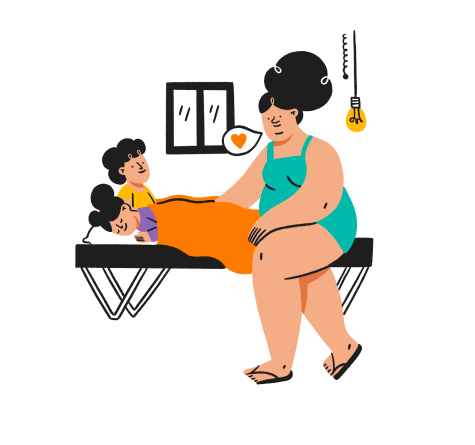
By promoting mental health we sow hope and a better understanding of the internal processes of children in early childhood, their needs and how they are affected by adversity.
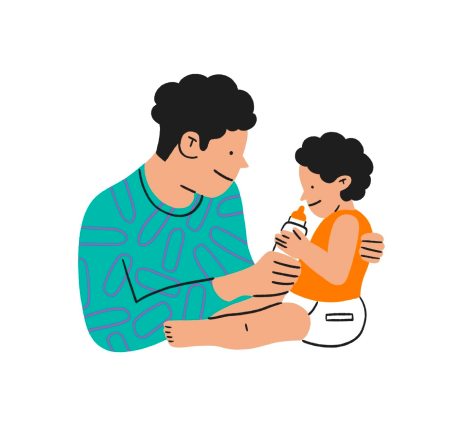
We cultivate the capacity to provide protection by strengthening nurturing relationships and a repertoire of assertive and loving parenting practices.
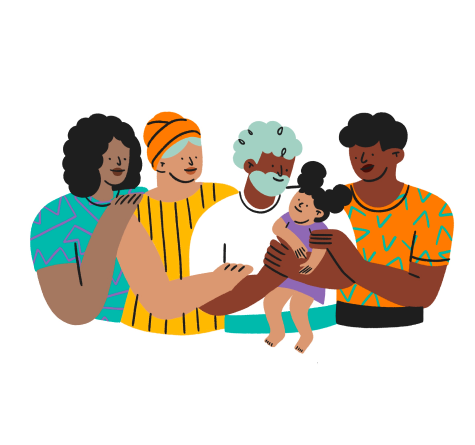
We empower parenting teams to consolidate enriching relationships and nurturing care within families.

The seeds of nurturing relationships flourish in loving and secure environments that break the cycle of toxic stress; they protect brain and cognitive development and physical and emotional health, despite adversities.
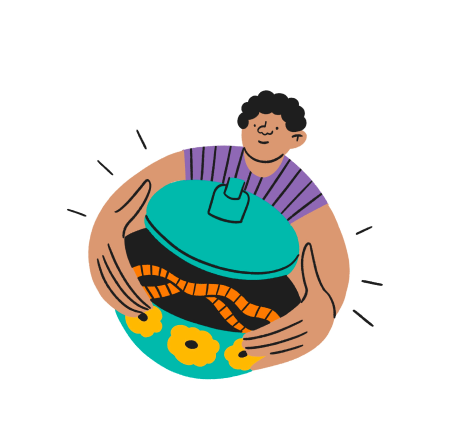
The strength of nurturing relationships lies in sewing a protective and loving shield to reap generations of well-being.
Psychosocial Component
The program is developed around a psychosocial component that regards the relationship between the individual and their environment as the central axis.
This component is the basis that articulates Semillas de Apego and drives the program’s themes and activities, recognizing that life experiences and the context in which people live affect mental health, the ability to build secure emotional relationships, and the ability to assume the role of caregiver for children.
This context refers explicitly to environments of armed conflict and forced displacement, but also includes other elements such as socio-economic vulnerability and community cultural norms and practices.
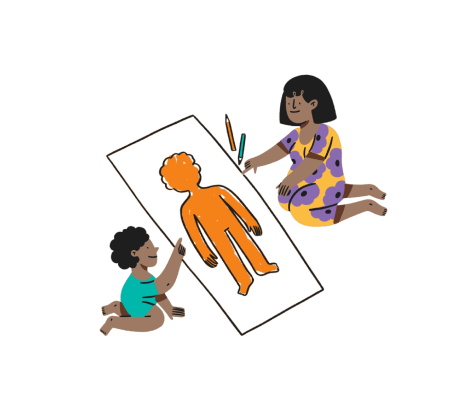
Psychosocial Component
The program is developed around a psychosocial component that regards the relationship between the individual and their environment as the central axis.
This component is the basis that articulates Semillas de Apego and drives the program’s themes and activities, recognizing that life experiences and the context in which people live affect mental health, the ability to build secure emotional relationships, and the ability to assume the role of caregiver for children.
This context refers explicitly to environments of armed conflict and forced displacement, but also includes other elements such as socio-economic vulnerability and community cultural norms and practices.

Group Component
We employ a group session methodology to implement the program, enabling participants to learn from each other’s experiences and reflections. This approach is critical in addressing the stigmas and taboos surrounding mental health, which allows participants to recognize the emotional and physical impacts related to traumatic experiences.
This component enables participants to recognize that trauma is a common reaction to an uncommon event. It encourages reflection on individual emotions and their impact when dealing with adversities.
Group learning is equally essential in helping participants identify new approaches to interacting with children and avoiding feelings of isolation in their experiences. Moreover, it enhances trust among community members, thereby aiding in the mending of the social structures damaged by conflict, displacement, and migration. The re-established trust fortifies the formation of links between participants and support networks within the community.
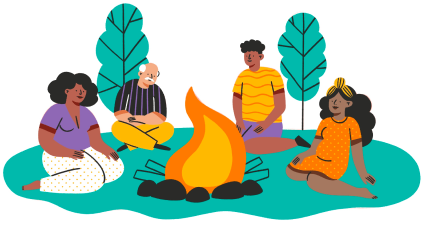
Group Component
We employ a group session methodology to implement the program, enabling participants to learn from each other’s experiences and reflections. This approach is critical in addressing the stigmas and taboos surrounding mental health, which allows participants to recognize the emotional and physical impacts related to traumatic experiences.
This component enables participants to recognize that trauma is a common reaction to an uncommon event. It encourages reflection on individual emotions and their impact when dealing with adversities.
Group learning is equally essential in helping participants identify new approaches to interacting with children and avoiding feelings of isolation in their experiences. Moreover, it enhances trust among community members, thereby aiding in the mending of the social structures damaged by conflict, displacement, and migration. The re-established trust fortifies the formation of links between participants and support networks within the community.

Communitarian Component
The community-oriented approach underlies the program’s structure within the region, with the goal of building community capacity through an implementation team composed of community facilitators.
This method reinforces the reflection processes by building on the acknowledgement of agency within the communities, and helps to mobilize local capacities.
Semillas de Apego facilitators are community members who experience the same contexts as program participants.
They actively adapt the program to each specific setting, offering a clearer understanding of the unique challenges and difficulties participants face and how these factors impact their mental wellbeing as well as their relationship with children.
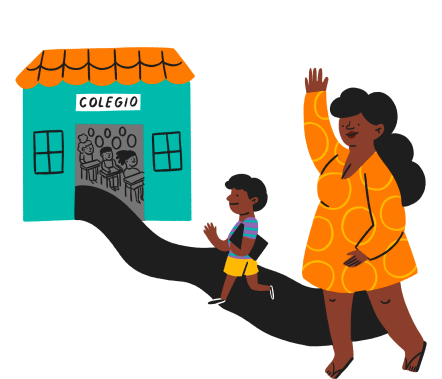
Communitarian Component
The community-oriented approach underlies the program’s structure within the region, with the goal of building community capacity through an implementation team composed of community facilitators.
This method reinforces the reflection processes by building on the acknowledgement of agency within the communities, and helps to mobilize local capacities.
Semillas de Apego facilitators are community members who experience the same contexts as program participants.
They actively adapt the program to each specific setting, offering a clearer understanding of the unique challenges and difficulties participants face and how these factors impact their mental wellbeing as well as their relationship with children.


Semillas de Apego Protects Childhood
ReproducirSemillas de Apego Protects Childhood
ReproducirSemillas de Apego Protects Childhood
Reproducir“I learned to apologize to my children; I never realized they felt the burdens I carried. I learned to apologize to them because they are not to blame for anything. I learned to think and carefully consider my steps before taking them. They are my mirror, and if I want better children, I have to start by changing.”
Participant from Bogotá, 2015
